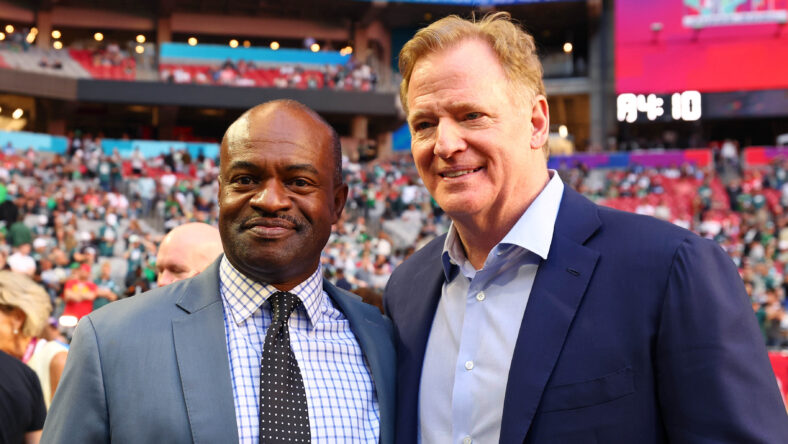Judge Sees Fault In Both the NFL and La’el Collins In A Blistering 25-Page Opinion
On Friday the US District Court for the Eastern District of Texas held a hearing to consider Dallas Cowboys Offensive Tackle La’el Collins’ request for a temporary restraining order against the NFL, but did not immediately rule, and rather took it under advisement through the weekend and Monday.
On Tuesday, however, the Court spoke loud and clear in denying Collins’ bid to play, but similarly providing a tongue lashing to the NFL. US District Court Judge Amos Mazzant III wrote a blistering 25-page memorandum opinion on the motion filed by Collins, chastising both sides for the motion, timeliness of it, as well as the arbitration and appeal process itself.
Collins asserted at the October 8, 2021 injunction hearing that the NFL’s violation of its own agreement, its alleged misrepresentations to the arbitrator, and the inability of the Court to more broadly review the arbitrator’s decision all amounted to fundamental unfairness under Section 10 of the Federal Arbitration Act, which district courts are allowed to review in narrow circumstances.
The standard to meet in order to obtain an injunction or temporary restraining order in either federal or state court is a high bar to meet. A party must show: (1) a substantial likelihood of success on the merits; (2) a substantial threat that he will suffer irreparable harm if the injunction is not granted; (3) the threatened injury outweighs any damage that the injunction might cause the defendant; and (4) the injunction will not disserve the public interest.
Judge Mazzant was not convinced that Collins met all, or in fact any, of the above noted metrics which are required in order to issue an injunction. Judge Mazzant plainly stated, “At this point in the litigation, based on the evidence presented and arguments made, the Court finds that Collins cannot meet the burden of demonstrating a substantial likelihood of success on the merits for any of his claims.”
However, Judge Mazzant, similarly raised issues and concerns within the arbitration and appeal process itself conducted by the NFL. “The Court has serious concerns regarding the NFL’s conduct and the arbitrator’s interpretation of the policy… the NFL did not give itself authority under its contract to subject a player to suspension as a type of “additional discipline” for deliberately evading or avoiding testing,”” Mazzant stated.
Ultimately, however, the Court found that an injunction was not appropriate because Collins had not satisfied the appropriate standard and had waited far too long to bring the action. The suspension has costed Collins roughly $2 million and, per the 2020 NFL Collective Bargaining Agreement, and voids the injury guarantee worth $6.48 million in his 2022 salary, as well as all future guarantees.
Judge Mazzant, however, provided one final statement for the NFL in the closing of the opinion.
“The Court takes no comfort in enforcing an arbitration award that upholds a punishment that, arguably, is not permissible under the parties’ CBA. But, just as the Court cannot embrace its own opinion as to the validity of Collins’ claims or the out-of-bounds nature of the NFL’s disciplinary decisions, the Court cannot disregard an arbitrator’s reasonable construction of the parties’ agreements.”
Categorized:More



